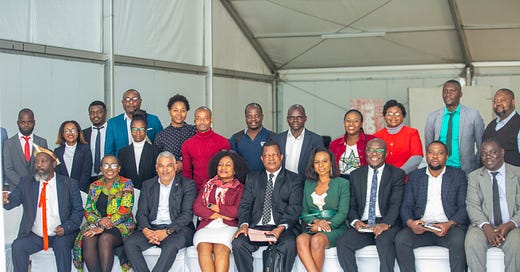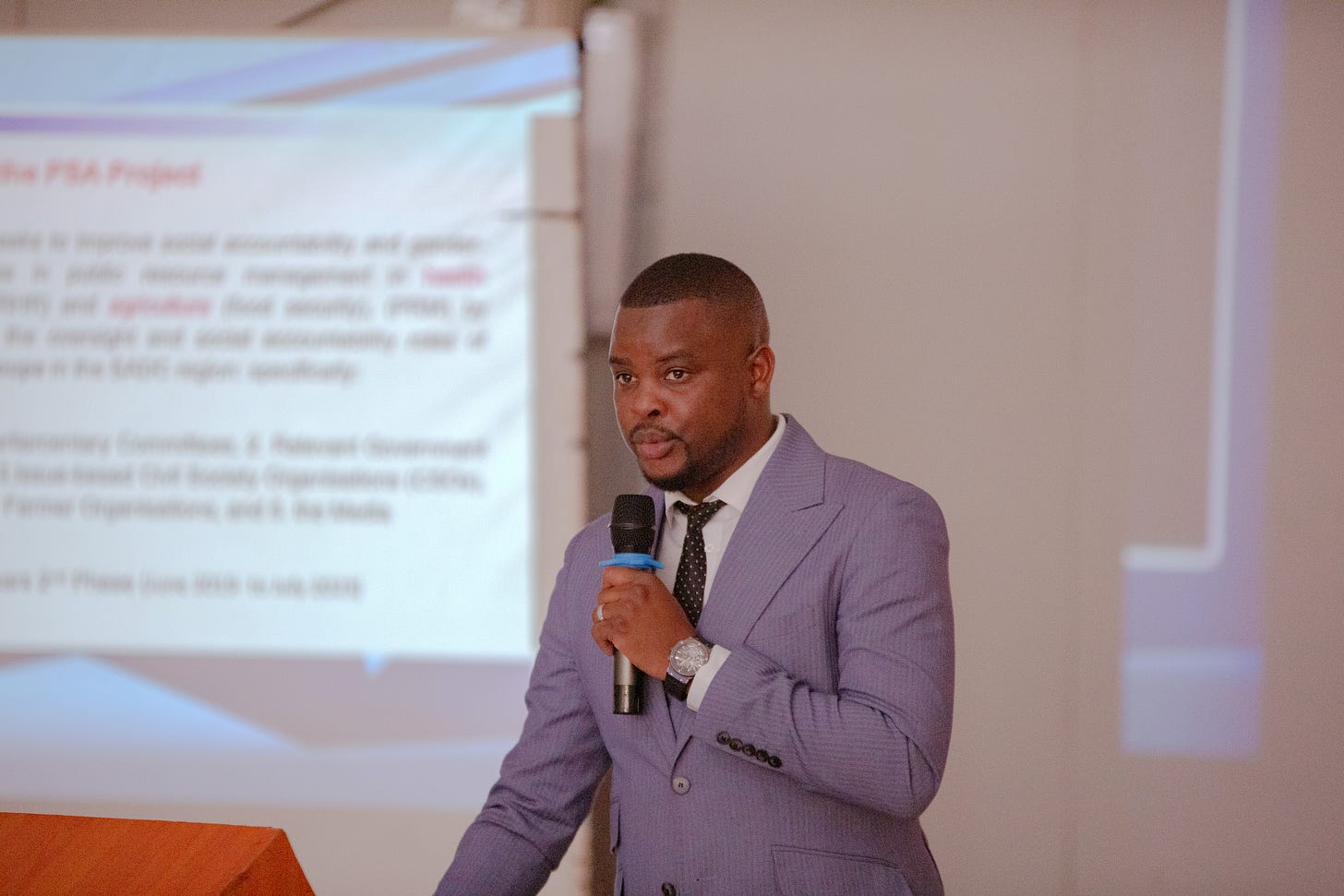SADC Secretary General Calls for Increased Accountability in Implementation of RISDP
In a keynote address, the Secretary General of SADC-PF highlights the importance of non-state actors and discusses the transition to a regional parliament.
LILONGWE, Malawi –In a speech delivered at the national dialogue for non-state actors in Malawi, SADC Secretary General Boemo Sekgoma called for increased accountability in the implementation of the Regional Indicative Strategic Development Plan (RISDP), writes Winston Mwale.
"The RISDP is a panoply of regional commitments that have yet to be fully implemented," said Sekgoma.
"We need to ensure that governments are held accountable for their commitments."
Sekgoma also highlighted the importance of the SADC Model Laws in promoting accountability.
"The SADC Model Laws provide non-state actors with the tools they need to hold governments to account," he said.
The Secretary-General concluded by calling for the transition of the SADC Parliamentary Forum to a regional parliament.
"A regional parliament would be better equipped to hold governments accountable for their commitments," he said.
Sekgoma's call for increased accountability was echoed by several non-state actors who attended the dialogue.
"We need to make sure that governments are held to their promises," said one participant.
"The RISDP is a vital document for the region, and we need to make sure that it is implemented effectively."
Pamela Kuwali, Executive Director of ActionAid Malawi, said that SADC member states have a responsibility to define, establish, and finance policies and programs that prioritise and protect the most vulnerable groups, including women, children, and youth.
“They also need to ensure that all their people benefit from sustained social and economic well-being, justice, and freedom. In order to deliver this responsibility, there is a need for robust and strategic planning to have the needs of the people reflected in national plans.”
She said ActionAid Malawi has been part of the journey for the development of Malawi2063, which outlines the government’s plans and aspirations to serve the people of Malawi better.
“ActionAid participated in the consultations that were done,” Kuwali said.
“We also had the privilege to leverage the strategic collaborations we have with different stakeholders, such as Parliament and selected parliamentary committees, issue-based civil society organisations, Ministries, departments, and agencies, and the media.”
She said ActionAid Malawi has been working to strengthen social accountability monitoring and oversight capacity for rights-based public resource management.
They have focused on understanding the need to enhance the planning and utilisation of public resources using a Social Accountability System that promotes strategic planning, resource allocation, expenditure management, performance management, public integrity management, and oversight management, she said.
“As Non-State Actors, we believe that the delivery of public services should respond to the needs of the people by putting in place plans that are realistic and progressive to the realization of human rights,” Kuwali said.
Pamela Kuwali, Executive Director of ActionAid Malawi, said:
As ActionAid Malawi, we are implementing a strategic plan that aligns well with Malawi 2063 and its 10-year Implementation plan. Our Country Strategic Paper Five has an interest in promoting and securing the realization of rights of vulnerable groups (women, young women and girls), building the resilience of people living in poverty while strengthening women-led secure livelihoods, preparedness and emergency response, and enhancing civic participation and state accountability for the redistribution of resources and delivery of quality, gender-responsive public services.
This strategy further deepens our commitment to work with different stakeholders to overcome the structural causes and consequences of poverty and injustice.
Wales Chigwenembe, PSA Programme Manager in Malawi, also spoke at the event.
He said that the PSA Project is working to improve social accountability and gender responsiveness in public resource management in health (HIV/AIDS, SRHR) and agriculture (food security).
The project is strengthening the oversight and social accountability roles of five target groups in the SADC region:
Selected Parliamentary Committees
Relevant Government Departments
Issue-based Civil Society Organisations (CSOs)
Smallholder Farmer Organisations
The Media
The PSA Project is a four-year project that began in June 2019 and will end in July 2023.
The national dialogue for non-state actors (NSAs) on the implementation of the Southern African Development Community's (SADC) Revised Regional Strategic Development Plan (RISDP), held in Lilongwe, Malawi, focused on the importance of socially accountable public resource management in SADC's development.
The RISDP is a 10-year regional strategy that aims to promote sustainable development in SADC.
It includes a number of goals related to health, agriculture, and other sectors. NSAs play an important role in monitoring the implementation of the RISDP and ensuring that it is aligned with the needs of the people.
The national dialogue provided a forum for NSAs to discuss the progress that has been made in implementing the RISDP, as well as the challenges that remain.
Participants also discussed strategies for mobilizing additional domestic resources to support the implementation of the RISDP.
By holding governments accountable for their commitments, non-state actors can play a vital role in ensuring that the RISDP is a success.






